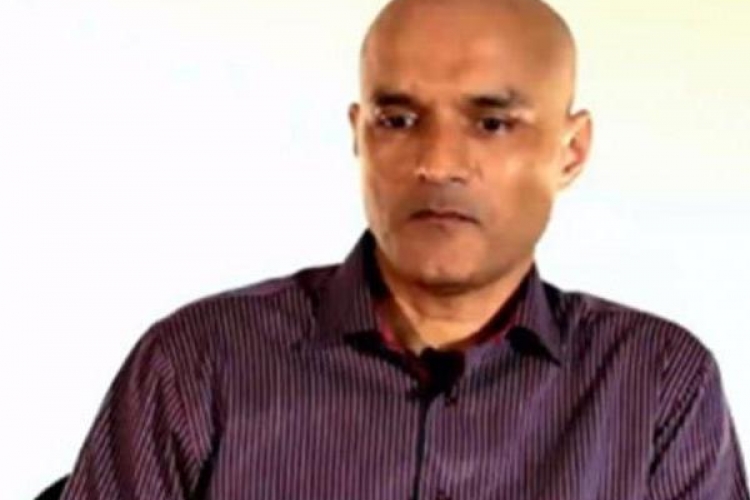Kulbhushan Jadhav and the issue
Who is Kulbhushan Jadhav?
Kulbhushan Jadhav, a former Indian Navy officer, was arrested by Pakistani officials on March 3, 2016, on suspicion of espionage and sabotage activities against the country. Claiming that Jadhav was an Indian spy, the Pakistani military court sentenced him to death. The Indian side, however, maintains that Jadhav was kidnapped from Iran where he had business interests after retiring from the Navy and that he has no links with the government. The execution was stayed after India’s appeal at International Court of Justice.
The case history:
On May 2017, India moved the ICJ against Pak “for egregious violations of the Vienna Convention on Consular Relations, 1963” in the case of Indian national Jadhav’s detention, trial, and sentencing to death.
India said it was not informed of Jadhav’s detention until long after his arrest, and that Pakistan failed to inform Jadhav of his rights. In violation of the Vienna Convention, Pakistan had refused India its right of consular access to Jadhav. And India had learned about his death sentence only through a press release.
India told the court that Jadhav was “kidnapped from Iran, where he was carrying on business after retiring from the Indian Navy, and was then shown to have been arrested in Balochistan” on March , 2016.
Pakistan informed India of the arrest only on March , 2016. India sought consular access to Jadhav that same day, and repeatedly thereafter.
On January 2017, Pakistan requested assistance in an investigation concerning Jadhav. It issued a Note Verbale saying consular access would be considered in the light of India’s response to Pakistan’s request for assistance in the probe.
India told the court that “linking assistance to the investigation process to the granting of consular access was by itself a serious violation of the Vienna Convention”.
India asked the court for relief:
(1) “by way of immediate suspension of the sentence of death”
(2) “by way of restitution in interregnum by declaring that the sentence of the military court is violative of international law and the provisions of the Vienna Convention”.
Also, India asked that Pakistan be restrained from giving effect to the sentence, and directed to take steps to annul the decision of the military court.
On May , 2017, India filed a request for the indication of provisional measures. It said Jadhav “would be subjected to execution unless the Court indicates provisional measures directing the Government of Pakistan to take all measures necessary to ensure that he is not executed until the Court’s decision on the merits” of the case.
India pointed out that Jadhav’s execution “would cause irreparable prejudice to the rights claimed by India”, and asked that the court direct Pakistan to “take all measures necessary to ensure that Jadhav is not executed”.
On May , 2017, the court asked Pakistan “to act in such a way as will enable any order the Court may make on this Request to have its appropriate effects”. Public hearings on India’s request were held on May 15, 2017.
After the May 2017 order, the court, on June , 2017, fixed September 13, 2017 as the time limit for India to file a memorial, and December 13, 2017 for Pakistan to file a counter-memorial.
On January 19, 2018, the ICJ authorized the submission of a Reply by India and Pakistan and the case hearing is going on at present.
Analysis :
A resolution moved by a group of US Congressmen in House of Representatives has tabled a bill which called upon Pakistan to recognize the right of self-determination for Balochistan. The bill indirectly tried to make an effort of materializing earlier set CIA agenda of “Greater Balochistan” which is comprising of territory of Pakistan, Iran, and Afghanistan. He alleged Pakistani security forces for violence and extrajudicial killing. This is an indirect threat to pak control in gilgit balo area
On February 5, Kashmir Day was observed across Pakistan to mark the unfulfilled freedom struggle going on in Kashmir. It was also commemorated on either side of the divide that separates Pakistani- and Indian-administered portions of the disputed Kashmir territory.
On the same day, protests were organized in Gilgit-Baltistan against the Pakistani state’s violations in the region. While local media hushed the protests, similar to its blackout of the Pashtun Tahaffuz Movement, there has been a nationalist movement brewing in Gilgit-Baltistan as the locals stand up against continued denial of their basic human rights.
Among those pressuring Islamabad to resolve the status of GB is Beijing, which now has its own stake in the region in the shape of the China-Pakistan Economic Corridor (CPEC), which enters Pakistan through the Gilgit-Baltistan region.
India has condemned CPEC and questioned its legality given that it passes through a region New Delhi claims as its own, one which remains part of a disputed territory. Meanwhile, separatists in Indian-administered Kashmir have warned Islamabad against the constitutional mainstreaming of Gilgit-Baltistan, saying that such a move would be a “betrayal of Kashmir.”
Stuck between Chinese pressure to address the status of Gilgit-Baltistan and its own position on Kashmir, Islamabad has failed to address the locals’ grievances and Pakistan’s response to this issue is Kulbhusan jadhav, thus creating a strategic stalemate and new strategic depth.


 IAS-2026 - OPTIONAL / GEOGRAPHY / PUBLIC ADMINISTRATION / SOCIOLOGY / ANTHROPOLOGY / ORIENTATION ON 03 & 04-10-2025
IAS-2026 - OPTIONAL / GEOGRAPHY / PUBLIC ADMINISTRATION / SOCIOLOGY / ANTHROPOLOGY / ORIENTATION ON 03 & 04-10-2025 